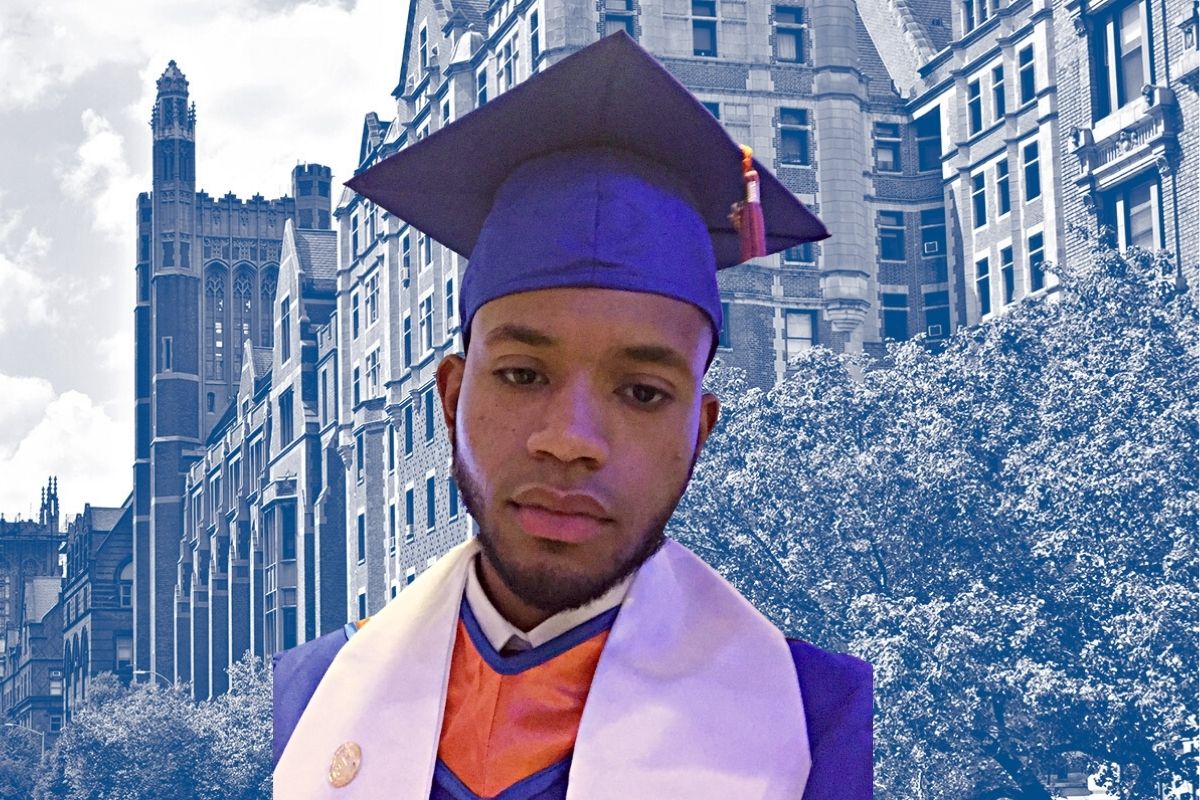Upon reflection, Geordany Arias realizes his career as an educator began years before he first stood before a class as a member of a TC Teacher Opportunity Corps cohort.
It in fact started when Arias, the third of four children raised by Spanish-speaking parents, acted as an intermediary with the English-speaking teachers of his younger siblings.
“The schools reached out to me as a parental educator,” Arias recalls of his role. “So, I guess I was already a teacher—I just wasn't getting paid for it.”
The memory of the language gap entered into Arias’ decision to specialize in Bilingual Bicultural Education at TC. A second-year Master’s student, he is graduating in May.
An additional task that fell to him as a liaison with his sibling’s Washington Heights schools—the implementation of an Individual Education Plan (IEP) for a younger brother—influenced the pursuit of a parallel bilingual Childhood Education certification to work with elementary-age students with disability.
The first in his family to enroll in higher ed, Arias launched the path to TC at the Borough of Manhattan Community College, where he notched the U.S. State Department-sponsored Benjamin A. Gilman Scholarship that came with the opportunity to study Hispanic heritage and literature in Spain.
Arias completed his undergraduate studies in 2020 with a degree (summa cum laude) in speech pathology from Lehman College.
With the exception of a semester in Spain, it didn't escape notice that Arias shared a similar background with very few of the teachers he encountered along the way.
The sense of isolation that seeped into his first weeks as a TC student dissipated with acceptance to the Teacher Opportunity Corps (TOC), the state-funded program that places teachers from underrepresented backgrounds in New York classrooms.
The TC program supports students with financial aid, workshops and faculty guidance during internships in New York City schools. Participation entails a commitment to teach in NYC school following graduation. The TOC team meanwhile provides professional development and continued support to alumni after they depart TC.
Arias, also an Abby O’Neill Fellow, is in his second year with the program.
“TOC gives me a breath of fresh air,” he says. “It is the support system that helped me get through being a grad student and has helped me overcome barriers I don't think I could have overcome without the TOC workshops and faculty support.”
The program is “a safe space where I'm in a group with people who actually look like me.”
Latinx students in Arias’ classrooms in Manhattan, Brooklyn and Bronx have in turn learned from a teacher who looks just like them: “The minute I’d take off my mask during the pandemic, students have looked at me and said, ‘Oh, my God. You look like my father. My father also has earrings,’” he says.
“It warms my heart because I worried that my earrings may not be professional. But now I see it is the representation I didn't have in elementary school when most of my teachers were women and, also, Caucasian.”
Beyond a personal fashion statement, the earrings have also become a learning launch point for Arias.
“I use them to establish a relationship with my students—especially the boys—by capitalizing on the earrings to build rapport with them,” says Arias, sounding—with good reason—with the acquired knowledge of someone who has devoted a fair portion of his life to teaching.
